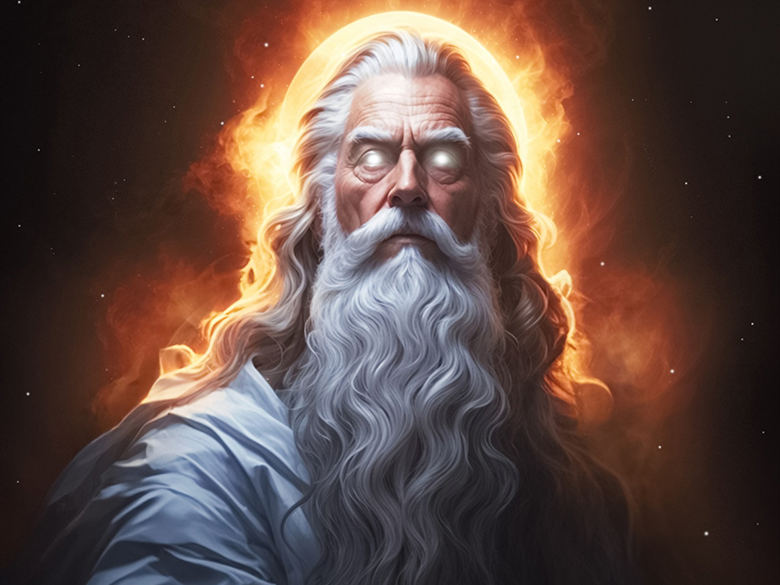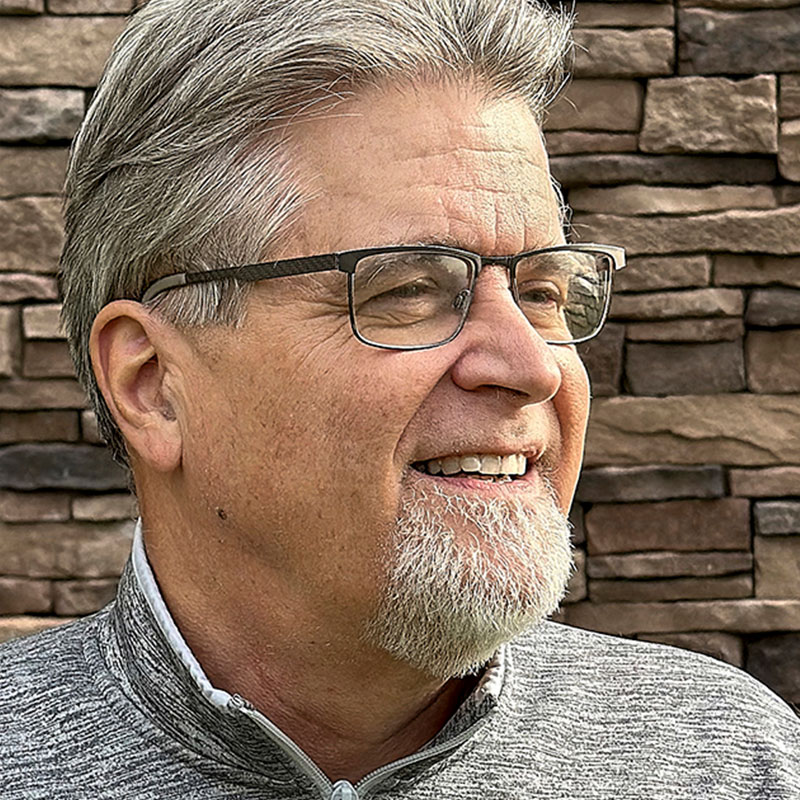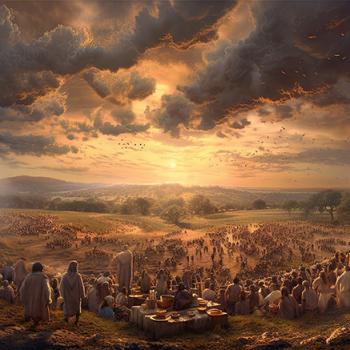
And the Biblical, Theological, and Philosophical Solution
One of the things I’ve learned in the deconstruction of my former evangelical faith is that deconstruction and rebuilding never end. If we remain open to learning new things, we will continue to deconstruct harmful elements of faith and continue rebuilding a rational, historical, and morally tenable theology or philosophy of life.
Recently I interviewed theologian and philosopher Thomas J. Oord on my podcast. Oord helped me learn several new biblical, theological, and philosophical lessons that address the problem of evil in the world and the problems with belief in an all-powerful, omnipotent God.
In this article (in two blog posts), I will describe 10 problems that arise from belief in an all-powerful, omnipotent God who is also supposedly all loving. These problems are part of a huge philosophical problem for faith in God, called the problem of evil. I was aware of the problem of evil during my deconstruction (and acknowledge it is the best reason for becoming an atheist), but never seriously addressed it in my writing. Now, thanks to what I learned from Oord, I’m ready to address it, first in this two-part blog post, and then in another post that will be called “A Compelling Solution to the Problem of Evil.”
In these first two blog posts (Part 1 and Part 2), I’ll give some of the major reasons for rejecting the whole concept of an almighty, omnipotent God. It might seem at first that I’m just spouting arguments that an atheist would give. However, in the next article after this two-part post, I’ll outline a solution to each of these problems and the larger problem of evil in the world. So, if these first posts frustrate you because it starts to demolish your faith in God’s sovereignty and power, please hang in there with me. At the end of these posts and especially in the next one on the problem of evil, I hope to help you overcome any angst you may feel. Moreover, I hope to open up a new refreshing paradigm on how to view divine power and a simple yet profound approach that solves the problem of evil.
Thanks to Tom Oord for his excellent philosophical and biblical arguments I summarize in these points below. I got them from the podcast interview and from his newest book, The Death of Omnipotence and the Birth of Amipotence.
What an Omnipotent God Is
The belief in an omnipotence God is the understanding that the divine is all powerful, controls all of life and history, and nothing happens that he hasn’t ultimately willed supposedly for the good of creation. It’s practically a universal article of faith, if not in most of Christianity, then certainly in evangelical and fundamentalist churches. It is sometimes described as the sovereignty of God. That is, as a divine sovereign, God is Lord over all creation, and exercises his rule, authority, and control over all things. Yet, as we will see, it is an extremely problematic proposition when coupled with the almost universally accepted attribute of God, that he is a God of love that loves all of creation. In this context, the belief in the omnipotent, almighty God…
1 – Does not align with original biblical language
Oord really blew me away with this one. I had no idea. As he explained, there really isn’t any textual case for the belief that God is all powerful in the Bible. There are three terms that are translated “almighty” in the Bible in relation to God. The first is the Hebrew word, El Shaddai, typically translated God Almighty. Yet Oord states this is a mistranslation. “The oldest and most likely meaning of shaddai is “breasts.” This is the breasted God who nourishes and protects his people so they “greatly increase.” It is not an all-powerful God. It’s also interesting that it equates with a female understanding of God rather than male. God is a female with breasts!
The second Hebrew word is sabaoth. It is sometimes translated “almighty.” Oord states, “Rather than ‘almighty,’ Sabaoth means ‘forces,’ ‘armies,’ ‘hosts,’ ‘ranks,’ ‘congregation,’ or ‘council.’” When it is describing Yahweh or Elohim, it is better translated “lord of hosts” or “head of a council.” When it’s not referring to God, it is never translated “almighty.” The third term is the Greek word, pantokrator, which first occurs in the Greek Septuagint version of the Old Testament. It is best translated “all-holding” or “all-sustaining.” It does not mean “almighty.” Then in the 4th century, Jerome translated the word pantokrator into Latin as omnipotens, from where we get our word omnipotence. But that was a mistranslation. As Oord adds, even in the New Testament, “No biblical words literally mean ‘omnipotent,’ ‘almighty,’ or ‘all-powerful.’” Jesus never called God omnipotent. God is described as powerful in the scriptures, but never all-powerful.
2 – Downplays the pain of victims of evil and natural disasters
In the traditional view of an almighty and all-loving God, God controls everything and has the power to prevent evil or atrocities. The usual rationale is that when evil occurs, it’s because God permits evil (even though he could intervene) due to (1) the fall of humankind, that humanity’s sin is to blame, (2) because he has given everyone free will to act according to their own choices even if they choose evil, and (3) because God supposedly knows some greater good will come out of the evil event or disaster. But an all-powerful Creator has the capability to interrupt, interfere, or intervene in the world and in these cases chooses not to. He supposedly can prevent pointless pain and suffering from happening at the same time as claiming he is a God of unconditional love. This makes God to be a fundamentally uncaring God because he has the power to prevent rapes, murders, atrocities, earthquakes, and a holocaust but doesn’t do it.
This “loving” God is not loving after all because he ignores or downplays the victims of these occurrences by not protecting them from the evil or disaster. If he’s all-powerful and loving, he could shelter victims by keeping any terrible evil from happening to them in the first place. But he doesn’t. That is a huge problem. Now it may be that God can work to turn bad experiences into something redeemable. But if he has the power to prevent evil in the first place and doesn’t do it, there’s a glaring contradiction with him allowing serious pain and suffering to occur whether it turns out for ultimate good or not. Would we as parents permit our children to suffer serious pain and anguish just to have some other good come out of it? I think not. (I’m not talking about some minor pain, like working hard to improve one’s standing, but major traumatic pain). So, how could a God with inestimably more love than human parents allow such a thing? If this God was all powerful, why wouldn’t he orchestrate good for the child without putting them through some horrendous, traumatic experience?
Given the above scenario, one can easily conclude that not only is an all-powerful God unloving in circumstances like those, but he apparently has no empathy for victims and people in pain. Victims of rape, sexual abuse, torture, violent attacks, war, and destructive natural disasters, suffer grave trauma, PTSD, and ongoing struggles after the evil event occurs. If God purposely puts people through these experiences in order to teach them a lesson, create a supposed “greater good,” or even ultimately heal them, it would be reasonable for us to question how genuinely loving and empathetic this God is. By refusing to intervene to stop pain and suffering, God is not extending compassion to a person. He is not sensitive to the feelings of anguish people experience. He downplays human suffering as a necessarily evil means to some arbitrary “good” end.
Now Calvinists might say something like, “Wait a minute. God is sovereign but he chooses or predestines who is saved and who is lost. He does not love everyone the way you think he does. Since he is God, and his ways are far above ours, he knows who will accept his love in the end and who won’t. So, it’s okay for him to not prevent all evil. His goal is to rescue only those who he has predestined for salvation.” They also say “everything that happens is God’s will and has a purpose.” They say things like this, but does this really help? It is logically sound only if God is discriminatory. And, it puts a huge question mark on what genuine love is. In the future blog post, “A Compelling Solution to the Problem of Evil,” I will address this and make the case that a God of authentic love has to love all of humanity equally, that evil outcomes can’t be his will, and universal salvation is his ultimate plan.
3 – Bolsters evil political leaders
If God is all powerful and controls and ordains history, he has power to put good and righteous people in political power to ensure people are treated fairly and enjoy equal justice. In fact, when a conservative Christian announces they are running for political office or the presidency, they invariably claim that it’s God’s will for them to run and even his will that they win. You have to wonder though, if whoever wins or takes power is what God wills, when evil rulers win or take over, was it God’s will for people to suffer under an evil ruler?
Human history tells us there have been plenty of evil leaders who have brought suffering on their own people and political opponents. Why doesn’t God intervene or prevent evil people from gaining power in the first place? This is a huge strike against an almighty, omnipotent God. He has the power to do anything and doesn’t want people to suffer because he is loving, but we are left in a world where for millions of people, tyranny rules. Is this God worthy of worship? As Oord says, “If we praise God as an all-powerful rescuer, we rightly lose faith when we’re not rescued.”
4 – Supports the false belief in the inerrancy of the Bible
There is a certain logic that comes with the belief in an all-powerful God. If God controls everything and has the power to dictate history, then it stands to reason that he would guarantee the texts that tell his story would be written without error. He would safeguard those texts to be copied and translated correctly and reliably throughout time. Therefore, the omnipotence of God supports the notion that the Bible is infallible and clear in its teaching. Any scriptural contradictions can simply be explained away because if God is all-powerful, he would ensure the Bible has all we need to practice the faith and be accurate in all it says. But any objective examination of the Bible and history shows it is far from being infallible. In reality, the narratives in what we call holy scripture support the idea that God is not all powerful and controlling in human history. There’s too many human mistakes in the Bible to truly support omnipotence.
5 – Fuels the false doctrine of hell
The doctrine of the omnipotence of God plays right into the hands of the false belief in eternal conscious torment for the damned or unsaved. In order for there to be a place called hell, to which God consigns unbelievers or evil people, there has to be a God who is all powerful. Although some people try to claim that the hellbound choose to go to hell because they hate being in the presence of a holy, righteous God, that position is not logically tenable. Even if they choose hell, free will requires that they have the ability to choose to leave hell and choose to repent of their harmful ways. Sending people to eternal perdition and throwing away the key is forcing them to remain in this state against their will if or when they repent. Why wouldn’t a God of genuine love and compassion for sinners always leave the door of forgiveness and restoration open? Why would he shut that door forever? Doesn’t that contradict the definition of love?
But if God is all-powerful, he can force someone into a state against their will. He has power to create hell and keep people there. Of course, if one claims this God is also a God of love it begs the questions asked above.
The Five Other Problems with an Omnipotent God
In the next post, I’ll explain the remaining five problems. Omnipotence also…
- Encourages belief in young earth creationism and science denial
- Causes angst for those who haven’t had spiritual experiences
- Contradicts our experience with sexual orientation and gender
- Creates a guilty, morally reprehensible God
- Is an atheist maker
In each of these problems, their solution becomes obvious when we realize that it’s perfectly legitimate, philosophically sound, and biblically correct to give up our belief in an all-powerful, almighty, omnipotent God. For many of us, this thought is disconcerting because it’s a position that has been drilled into us oftentimes since childhood. But when you understand how it can work, and that God can still be universally loving even though he’s not all-powerful, it is a more comforting, logical, and historical view of God in the end. Stay tuned!
************
Michael Camp tends the Spiritual Brewpub, which helps disillusioned or post-evangelicals uncover historical facts and insights that help them deconstruct, rethink, and rebuild a more authentic faith or spirituality. He is the author of Breaking Bad Faith: Exposing Myth and Violence in Popular Theology to Recover the Path of Peace. To get specific help deconstructing conservative Christianity and rebuilding healthy faith, see Michael’s Religious Deconstruction Workshop.














